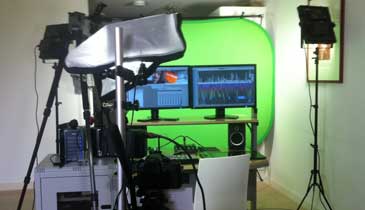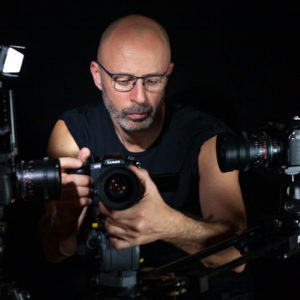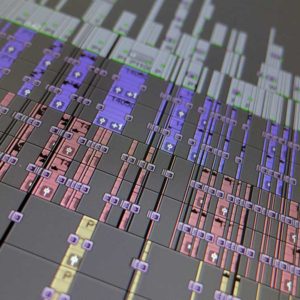Working freelance Q&A is an article I have written to answer some of the questions sent to me by students looking for help with their future aims and ambitions and potential freelance career.

Answering students questions
Initially, a couple of creative media production students, currently studying at Chichester College, contacted me. As part of their current assignments, they were looking to question a freelance filmmaker and video editor about how they could go about working as freelancers in the media industry. These are their questions to me, along with my answers.
How much research and practice did you undertake before starting your freelance career?
Not enough! I left the BBC (after 13 years of working in TV post-production) with a redundancy package, so I had a bit of a financial safety net. I hoped to realise a childhood dream to become a freelance cameraman, and I planned to make a living as a motorbike cameraman offering fast-response filming in and around London. For a variety of reasons, this original plan did not work out. I then had to re-assess my situation and to come up with an idea of what I could do that would give me an income as a freelancer. Fortunately, I had a range of skills, from my professional career at the BBC, to draw upon. At that time, I was given an opportunity by a friend to make a short film for a Charity. From then on, my career as a freelancer progressed. As well as having an idea of what you want to do, you also need to understand what particular skills are in demand and what ‘products’ people are looking for.
What skills do you feel like you needed to make your work as successful as it is?
Solid technical and creative skills: that cover filming, sound recording, lighting, directing and editing any kind of gig that you are likely to encounter. The more films and videos you make, the more you will learn from either the mistakes you may make or from the things that go well. In the early days of my freelance filming, my professional editing skills helped me overcome some particular filming challenges. Once I had all the footage in the edit, I could make sure I could deliver the best film from the footage available. When you start out, there are many things to learn and bring together. The critical thing is making sure you deliver each project to the client’s satisfaction. If you are not happy with something (or the client isn’t) work at it and re-do it till you and they are.
So project management skills would include; producing and organising filming schedules, marketing and communication.
And people skills would include the ability to relate to a wide range of people from the public to volunteers to CEO’s and celebrities. Ensuring that people like you and want to work and co-operate with you.
What resources are essential for your job role?
A happy, motivated and physically fit self. You must have a positive and friendly attitude with everyone. Go out of your way to help people, especially those who have little or limited previous experience of filmmaking,
My basic filming kit includes: Two or more cameras; lenses; filters; LED lights; tripods; various grip (monopod, fig rig, supports); lavalier microphone directional microphone; radio microphones; digital audio recorder; camera batteries; camera data cards; rechargeable and equipment batteries. As I mostly on my own this all has to fit in suitable luggage so that I can carry all the gear on public transport if required.
My basic editing kit: My MacPro, Avid edit software, Photoshop, Sorenson Squeeze, various software programmes, RAID 5 storage with a mirrored back up copy, UPS, mobile storage, quality LCD monitors, quality audio speakers, audio mixer, cables and various types of connectivity.
My marketing tools include: Setting up my website; online channels; social networks; E-mail; smartphone; broadband; a wide-ranging network of professional and creative contacts.
How do you promote yourself?
Primarily, optimising my fast-loading website with a portfolio and testimonials and search engine optimisation. Utilising social media, e-mail marketing, friends, networking, LinkedIn, promotional videos, YouTube channel, Vimeo channel, other professional websites and social/professional platforms and recommendations from previous clients.
How do you manage your work? Do you have a schedule that you follow?
I set up my edit-suite at home so I can edit in a relaxed and stress-free environment when it suits me. When you work for yourself, there is always something to do, and you do have to be disciplined to maintain a sensible work/life balance. Everything is down to you. You have to find the work, manage all your marketing and build good working relationships with all your contacts in this field.
When you are busy with one or more projects, you have to focus on the essentials and put in any number of hours to ensure you deliver to clients’ deadlines. Between projects, you have to work hard to market yourself to ensure that future projects are available. There is always a great deal to do when working as a freelancer. It’s down to you to ensure that everything is kept up-to-date. This can include managing your website, writing blogs, marketing, organising your work rota, updating your skills, training, following up on opportunities, meeting people and always more marketing.
How do you know if your work is of a high standard?
I trained as a post-production trainee assistant at the BBC and, over time, progressed into an assistant then to an editor. I have over 15 years of experience in post-production, so I am well trained in the technical standards of broadcast television. Over time you develop a keen eye and ear for what is good quality. The more work you do, the more you learn about creating quality work and the effort that takes in doing so.
What are your responsibilities as a video editor?
As a freelance editor, my responsibilities are to deliver what the client wants and to the technical standards required. When working at the BBC, my work had to comply with BBC editorial guidelines and BBC technical standards for network television. Some of these guidelines are still relevant to the work that I do. However, the technical guidelines for delivering video to YouTube are considerably less exacting than delivering a programme for TV broadcast. If you want to work as a video editor in a television broadcast, you need to know the technical specifications required for delivery and understand how to interpret them.
Do you tend to work with the same people, if you do work with others?
If people like you and your work (and your price!) you will, over time, build up a client base. My product is not something everyone frequently needs (it might be a once-a-year project for some people), so you need to build up a network of clients for freelancing to work out, which takes time. Most of the time, I can produce, direct, film and edit my commissions all by myself. There have been times, during live performances, where I have needed to hire additional camera people to ensure that I get suitable coverage. I know a team of people that I can rely on.
How do you get paid?
Usually, direct to my bank account after invoicing clients once projects have been signed off and delivered. For new clients or projects that take place over a long period, I will ask the client for a deposit in advance to confirm the filming dates with the balance of the payment due being payable on completion.
Do you pay taxes or National Insurance? If so, how?
As a freelancer, there are fixed rates for NI contributions. I have an accountant to ensure any allowances for self-employment are accounted for and so with his help, I fill in an annual tax return.
Do you personally think that working freelance is better than working through contracted employment?
No, it’s not necessarily better. It’s different. Being a freelancer is like being a surfer – you are always riding a wave – sometimes the water is flat and still, sometimes you get a big wave. It’s all down to you to make it work. You have to be determined, dedicated and motivated. You don’t get paid for being sick or on holiday. You have to persevere, be very resourceful and find answers yourself to all the questions that arise.
What advice would you give to someone who wanted to follow your career path?
The more skills you can attain to a high standard (which you can get paid for) the better. You might need to do different paid work to help support you in the early years. When you start, it can require a lot of effort and can be challenging to make a freelance career pay enough to survive on. There is a lot of competition (a lot of people are trying to make this work for them). People succeed because they are good at what they do, deliver quality on time and budget and are pleasant (or even fun!) to work with. I put an ad out recently for a camera person to assist me with a day’s work at £250. Within half an hour, I had over 20 CVs and 40 by the end of the day. This shows that a lot of people are chasing the available jobs.
Develop your portfolio and range of skills
You will need a portfolio of work to show people. Some people think that you need to have made a few music videos before you would get a gig for something like that. It’s like, let me see if you have done this particular job before if so, I will trust you to do this project. So having a wide-ranging portfolio is excellent. Sometimes it’s a good idea to collaborate or work on creative and exciting projects just for the experience, even if they are not paid. Everything you do can help towards your portfolio and professional body of work.
Working freelance Q&A
I hope you have found this ‘Working freelance Q&A’ helpful. If you have any further questions about working as a freelancer or would like any help with your video production project, please do get in touch. You might like to read some of these articles or check out my video production blog for more help and advice.



